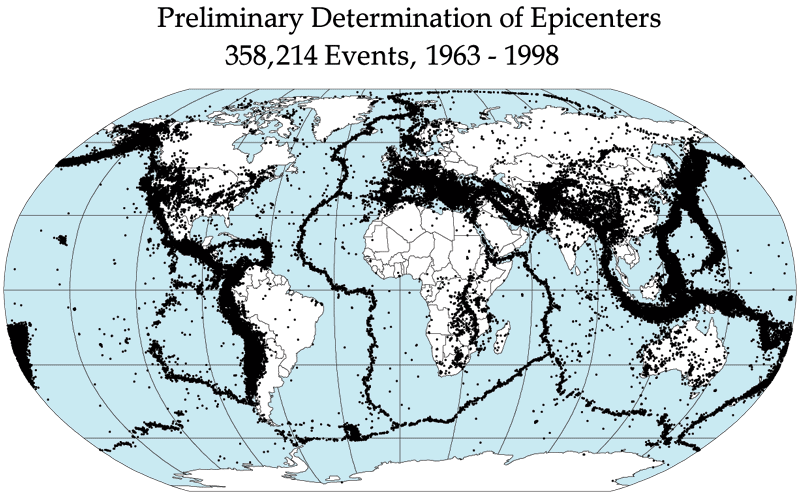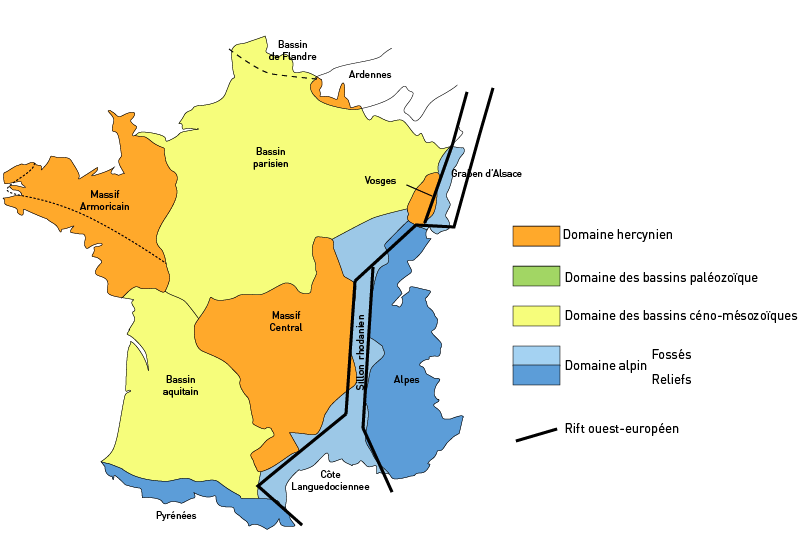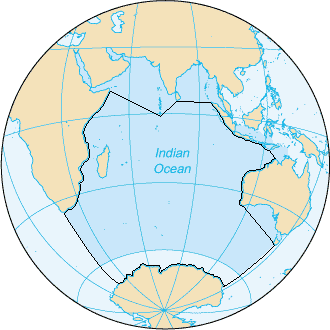|
Paul Lemoine
Paul Lemoine (March 28, 1878 – March 14, 1940) was a French geologist born in Paris. He was the son of chemist Georges Lemoine (1841-1922) and husband of phycologist Marie Lemoine (1887â1984). Career In 1902-03 he conducted geological studies of northern Madagascar that included Diego Suarez. In 1904 he performed geological/exploratory investigations in Morocco. From 1908 to 1919 he was head of the GĂŠologie au Laboratoire Colonial in Paris. During this time period he also taught classes in geology at the Ecole spĂŠciale d'Architecture (1909-1920). Following the retirement of Stanislas-Ătienne Meunier (1843-1925), he was appointed chair of geology at the MusĂŠum national d'histoire naturelle (1920). From 1932 to 1936 he was director of the museum. Annales, Paul LEMOINE (1878-1940). In 1916 in collaboration with other scientists, he created the ''SociĂ ... [...More Info...] [...Related Items...] OR: [Wikipedia] [Google] [Baidu] |
Geologist
A geologist is a scientist who studies the solid, liquid, and gaseous matter that constitutes Earth and other terrestrial planets, as well as the processes that shape them. Geologists usually study geology, earth science, or geophysics, although backgrounds in physics, chemistry, biology, and other sciences are also useful. Field research (field work) is an important component of geology, although many subdisciplines incorporate laboratory and digitalized work. Geologists can be classified in a larger group of scientists, called geoscientists. Geologists work in the energy and mining sectors searching for natural resources such as petroleum, natural gas, precious and base metals. They are also in the forefront of preventing and mitigating damage from natural hazards and disasters such as earthquakes, volcanoes, tsunamis and landslides. Their studies are used to warn the general public of the occurrence of these events. Geologists are also important contributors to climate ch ... [...More Info...] [...Related Items...] OR: [Wikipedia] [Google] [Baidu] |
Creationism
Creationism is the religious belief that nature, and aspects such as the universe, Earth, life, and humans, originated with supernatural acts of divine creation. Gunn 2004, p. 9, "The ''Concise Oxford Dictionary'' says that creationism is 'the belief that the universe and living organisms originated from specific acts of divine creation.'" In its broadest sense, creationism includes a continuum of religious views, Haarsma 2010, p. 168, "Some Christians, often called 'Young Earth creationists,' reject evolution in order to maintain a semi-literal interpretation of certain biblical passages. Other Christians, called 'progressive creationists,' accept the scientific evidence for some evolution over a long history of the earth, but also insist that God must have performed some miracles during that history to create new life-forms. Intelligent design, as it is promoted in North America is a form of progressive creation. Still other Christians, called theistic evolutionists' or 'ev ... [...More Info...] [...Related Items...] OR: [Wikipedia] [Google] [Baidu] |
French Geologists
French (french: français(e), link=no) may refer to: * Something of, from, or related to France ** French language, which originated in France, and its various dialects and accents ** French people, a nation and ethnic group identified with France ** French cuisine, cooking traditions and practices Fortnite French places Arts and media * The French (band), a British rock band * "French" (episode), a live-action episode of ''The Super Mario Bros. Super Show!'' * ''Française'' (film), 2008 * French Stewart (born 1964), American actor Other uses * French (surname), a surname (including a list of people with the name) * French (tunic), a particular type of military jacket or tunic used in the Russian Empire and Soviet Union * French's, an American brand of mustard condiment * French catheter scale, a unit of measurement of diameter * French Defence, a chess opening * French kiss, a type of kiss involving the tongue See also * France (other) * Franch, a surname * Frenc ... [...More Info...] [...Related Items...] OR: [Wikipedia] [Google] [Baidu] |
1940 Deaths
Year 194 ( CXCIV) was a common year starting on Tuesday (link will display the full calendar) of the Julian calendar. At the time, it was known as the Year of the Consulship of Septimius and Septimius (or, less frequently, year 947 ''Ab urbe condita''). The denomination 194 for this year has been used since the early medieval period, when the Anno Domini calendar era became the prevalent method in Europe for naming years. Events By place Roman Empire * Emperor Septimius Severus and Decimus Clodius Septimius Albinus Caesar become Roman Consuls. * Battle of Issus: Septimius Severus marches with his army (12 legions) to Cilicia, and defeats Pescennius Niger, Roman governor of Syria. Pescennius retreats to Antioch, and is executed by Severus' troops. * Septimius Severus besieges Byzantium (194â196); the city walls suffer extensive damage. Asia * Battle of Yan Province: Warlords Cao Cao and LĂź Bu fight for control over Yan Province; the battle lasts for over 100 ... [...More Info...] [...Related Items...] OR: [Wikipedia] [Google] [Baidu] |
1878 Births
Events January–March * January 5 – Russo-Turkish War – Battle of Shipka Pass IV: Russian and Bulgarian forces defeat the Ottoman Empire. * January 9 – Umberto I becomes King of Italy. * January 17 – Battle of Philippopolis: Russian troops defeat the Turks. * January 23 – Benjamin Disraeli orders the British fleet to the Dardanelles. * January 24 – Russian revolutionary Vera Zasulich shoots at Fyodor Trepov, Governor of Saint Petersburg. * January 28 – ''The Yale News'' becomes the first daily college newspaper in the United States. * January 31 – Turkey agrees to an armistice at Adrianople. * February 2 – Greece declares war on the Ottoman Empire. * February 7 – Pope Pius IX dies, after a 31½ year reign (the longest definitely confirmed). * February 8 – The British fleet enters Turkish waters, and anchors off Istanbul; Russia threatens to occupy Istanbul, but does not carry out the threat. * Febru ... [...More Info...] [...Related Items...] OR: [Wikipedia] [Google] [Baidu] |
Bibliography
Bibliography (from and ), as a discipline, is traditionally the academic study of books as physical, cultural objects; in this sense, it is also known as bibliology (from ). English author and bibliographer John Carter describes ''bibliography'' as a word having two senses: one, a list of books for further study or of works consulted by an author (or enumerative bibliography); the other one, applicable for collectors, is "the study of books as physical objects" and "the systematic description of books as objects" (or descriptive bibliography). Etymology The word was used by Greek writers in the first three centuries CE to mean the copying of books by hand. In the 12th century, the word started being used for "the intellectual activity of composing books." The 17th century then saw the emergence of the modern meaning, that of description of books. Currently, the field of bibliography has expanded to include studies that consider the book as a material object. Bibliography, in ... [...More Info...] [...Related Items...] OR: [Wikipedia] [Google] [Baidu] |
Earthquake
An earthquake (also known as a quake, tremor or temblor) is the shaking of the surface of the Earth resulting from a sudden release of energy in the Earth's lithosphere that creates seismic waves. Earthquakes can range in intensity, from those that are so weak that they cannot be felt, to those violent enough to propel objects and people into the air, damage critical infrastructure, and wreak destruction across entire cities. The seismic activity of an area is the frequency, type, and size of earthquakes experienced over a particular time period. The seismicity at a particular location in the Earth is the average rate of seismic energy release per unit volume. The word ''tremor'' is also used for Episodic tremor and slip, non-earthquake seismic rumbling. At the Earth's surface, earthquakes manifest themselves by shaking and displacing or disrupting the ground. When the epicenter of a large earthquake is located offshore, the seabed may be displaced sufficiently to cause ... [...More Info...] [...Related Items...] OR: [Wikipedia] [Google] [Baidu] |
Volcano
A volcano is a rupture in the crust of a planetary-mass object, such as Earth, that allows hot lava, volcanic ash, and gases to escape from a magma chamber below the surface. On Earth, volcanoes are most often found where tectonic plates are diverging or converging, and most are found underwater. For example, a mid-ocean ridge, such as the Mid-Atlantic Ridge, has volcanoes caused by divergent tectonic plates whereas the Pacific Ring of Fire has volcanoes caused by convergent tectonic plates. Volcanoes can also form where there is stretching and thinning of the crust's plates, such as in the East African Rift and the Wells Gray-Clearwater volcanic field and Rio Grande rift in North America. Volcanism away from plate boundaries has been postulated to arise from upwelling diapirs from the coreâmantle boundary, deep in the Earth. This results in hotspot volcanism, of which the Hawaiian hotspot is an example. Volcanoes are usually not created where two tectonic plates slide ... [...More Info...] [...Related Items...] OR: [Wikipedia] [Google] [Baidu] |
Paris Basin
The Paris Basin is one of the major geological regions of France. It developed since the Triassic over remnant uplands of the Variscan orogeny (Hercynian orogeny). The sedimentary basin, no longer a single drainage basin, is a large sag in the craton, bordered by the Armorican Massif to the west, the Ardennes-Brabant axis to the north, the Massif des Vosges to the east, and the Massif Central to the south.Duval, B.C., 1992, Villeperdue Field, In Giant Oil and Gas Fields of the Decade, 1978-1988, AAPG Memoir 54, Halbouty, M.T., editor, Tulsa: American Association of Petroleum Geologists, Extent The region usually regarded as the Paris Basin is rather smaller than the area formed by the geological structure. The former occupies the centre of the northern half of the country, excluding Eastern France. The latter extends from the hills just south of Calais to Poitiers and from Caen to the brink of the middle Rhine Valley, east of SaarbrĂźcken. Geography The landscape is one of ... [...More Info...] [...Related Items...] OR: [Wikipedia] [Google] [Baidu] |
Indian Ocean
The Indian Ocean is the third-largest of the world's five oceanic divisions, covering or ~19.8% of the water on Earth's surface. It is bounded by Asia to the north, Africa to the west and Australia to the east. To the south it is bounded by the Southern Ocean or Antarctica, depending on the definition in use. Along its core, the Indian Ocean has some large marginal or regional seas such as the Arabian Sea, Laccadive Sea, Bay of Bengal, and Andaman Sea. Etymology The Indian Ocean has been known by its present name since at least 1515 when the Latin form ''Oceanus Orientalis Indicus'' ("Indian Eastern Ocean") is attested, named after Indian subcontinent, India, which projects into it. It was earlier known as the ''Eastern Ocean'', a term that was still in use during the mid-18th century (see map), as opposed to the ''Western Ocean'' (Atlantic Ocean, Atlantic) before the Pacific Ocean, Pacific was surmised. Conversely, Ming treasure voyages, Chinese explorers in the Indian Oce ... [...More Info...] [...Related Items...] OR: [Wikipedia] [Google] [Baidu] |
EncyclopÊdie Française
The ''EncyclopĂŠdie française'' was a French encyclopedia designed by Anatole de Monzie and Lucien Febvre. It appeared between 1935 and 1966. Volumes *I. L'Outillage mental. PensĂŠe, langage, mathĂŠmatique. *II. La physique. *III. Le Ciel et la Terre. *IV. La vie. *V. Les ĂŞtres vivants. *VI. L'ĂŞtre humain. *VII. Espèce humaine. *VIII. La vie mentale. *IX. L'univers ĂŠconomique et social. *X. L'ĂŠtat moderne, amĂŠnagement et crise. *XI. La vie internationale. *XII. Chimie. Science et industries. *XIII. Industrie. Agriculture. *XIV. La civilisation quotidienne. *XV. Education et instruction. *XVI. Arts et LittĂŠratures dans la sociĂŠtĂŠ contemporaine: Materiaux et Techniques. *XVII. Arts et LittĂŠratures dans la sociĂŠtĂŠ contemporaine: Oeuvres et InterprĂŠtations. *XVIII. La Civilisation ĂŠcrite. *XIX. Philosophie. Religion. *XX. Le monde en devenir (histoire, ĂŠvolution, prospective). External links *Charles Van Doren Charles Lincoln Van Doren (February 12, 1926 â Ap ... [...More Info...] [...Related Items...] OR: [Wikipedia] [Google] [Baidu] |







